|
I am currently a Human-Centered AI postdoctoral fellow at Stanford advised by Madeleine Udell and Ellen Vitercik. Previously, I did my PhD at Cornell in Operations Research and Information Engineering, where I was fortunate enough to be advised by the incomparable Oktay Gunluk . My work leverages tools from machine learning, computational optimization, and human-computer interaction to build human-centered artificial intelligence. Prior to joining Cornell, I completed my undergraduate at the University of Toronto studying industrial engineering and spent a year working at the Royal Bank of Canada building deep reinforcement learning based trade execution algorithms. I was also lucky enough to spend the summer of 2021 working remotely with the Applied AI group at IBM research on interpretable clustering, and the summer of 2023 working at Microsoft Research with the Human Understanding and Empathy Group and the Office of Applied Research on LLMs for Constraint Programming. In addition to my research, I'm passionate about training the next generation of data scientists through programs such as iXperience where I've taught introductory practical data science tools in Python and R to students around the world. Outside of the office, you're most likely to find me hiking (27 national parks and counting). I am on the 2025-2026 job market! Email / CV / Google Scholar |

|
|
|
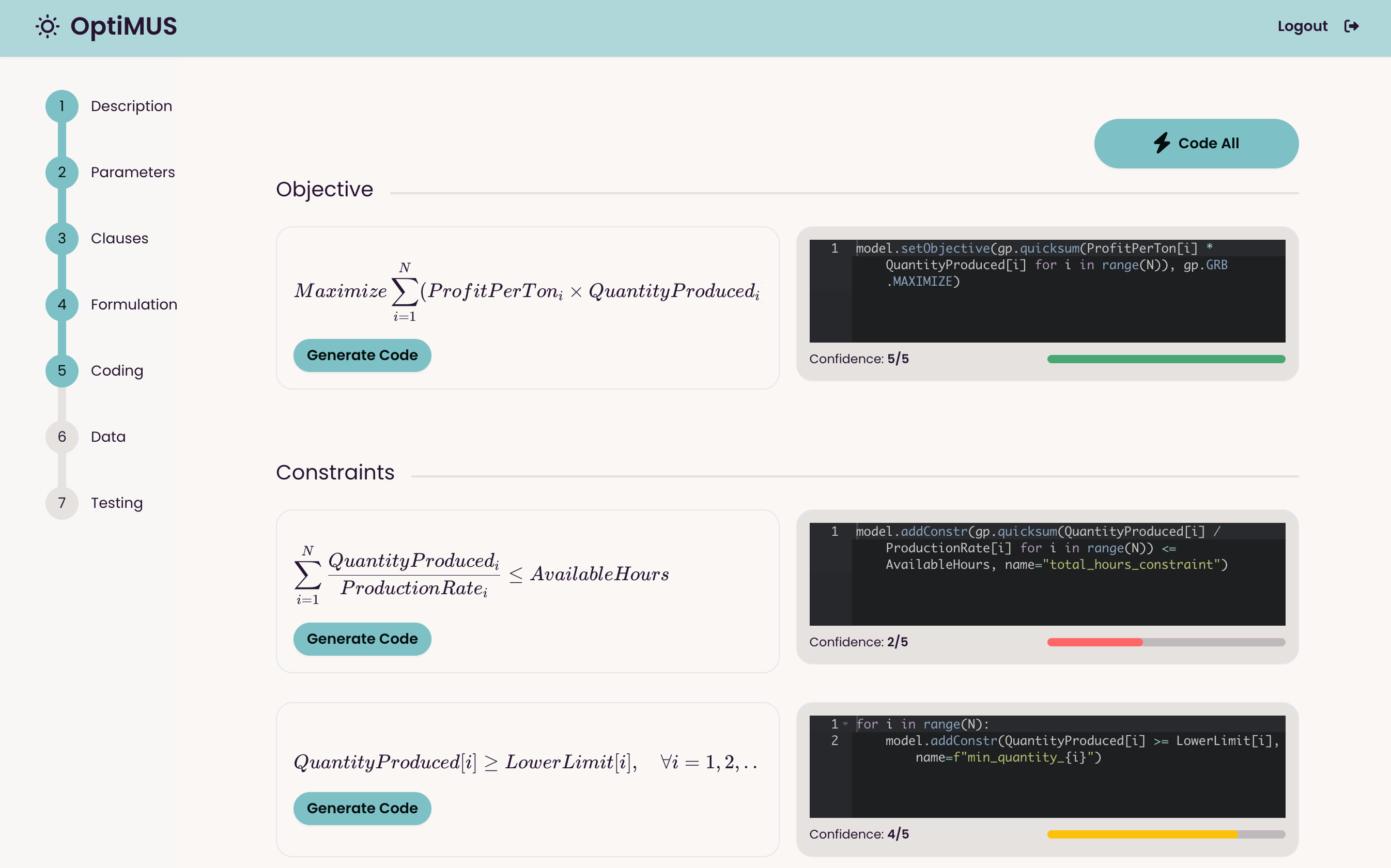
|
Ali AhmadiTeshnizi, Wenzhi Gao, Herman Brunborg, Shayan Talaei, Connor Lawless, Madeleine Udell Major Revision at Management Science Optimization problems are pervasive in sectors from manufacturing and distribution to healthcare. However, most such problems are still solved heuristically by hand rather than optimally by state-of-the art solvers because the expertise required to formulate and solve these problems limits the widespread adoption of optimization tools and techniques. We introduce a Large Language Model (LLM)-based system designed to formulate and solve (mixed integer) linear programming problems from their natural language descriptions. Check it out for yourself here. |
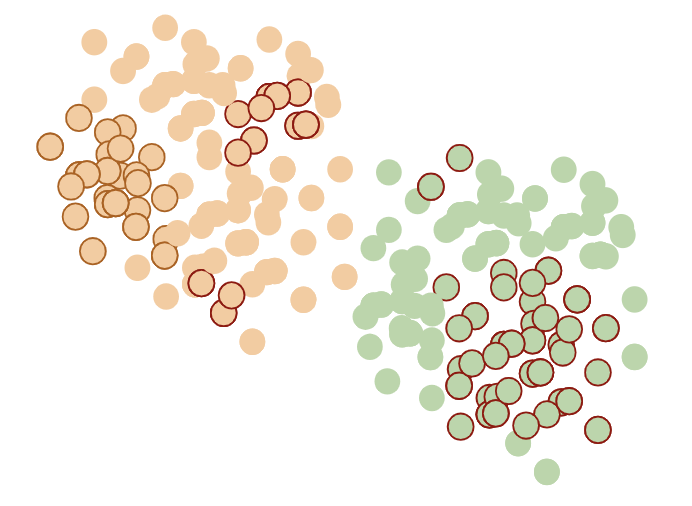
|
Connor Lawless, Oktay Gunluk Major Revision at Operations Research Preliminary version at CPAIOR (2024) This paper considers the problem of performing k-means clustering while ensuring groups (e.g. demographic groups) have a minimum level of representation in a specified number of clusters. We show that the popular k-means algorithm (Lloyd's heuristic) can result in unfair outcomes where certain groups lack sufficient representation past the minimum threshold in a proportional number of clusters. We formulate the problem through a mixed-integer optimization framework and present a variant of Lloyd's algorithm, called MiniReL, that directly incorporates the fairness constraints. |
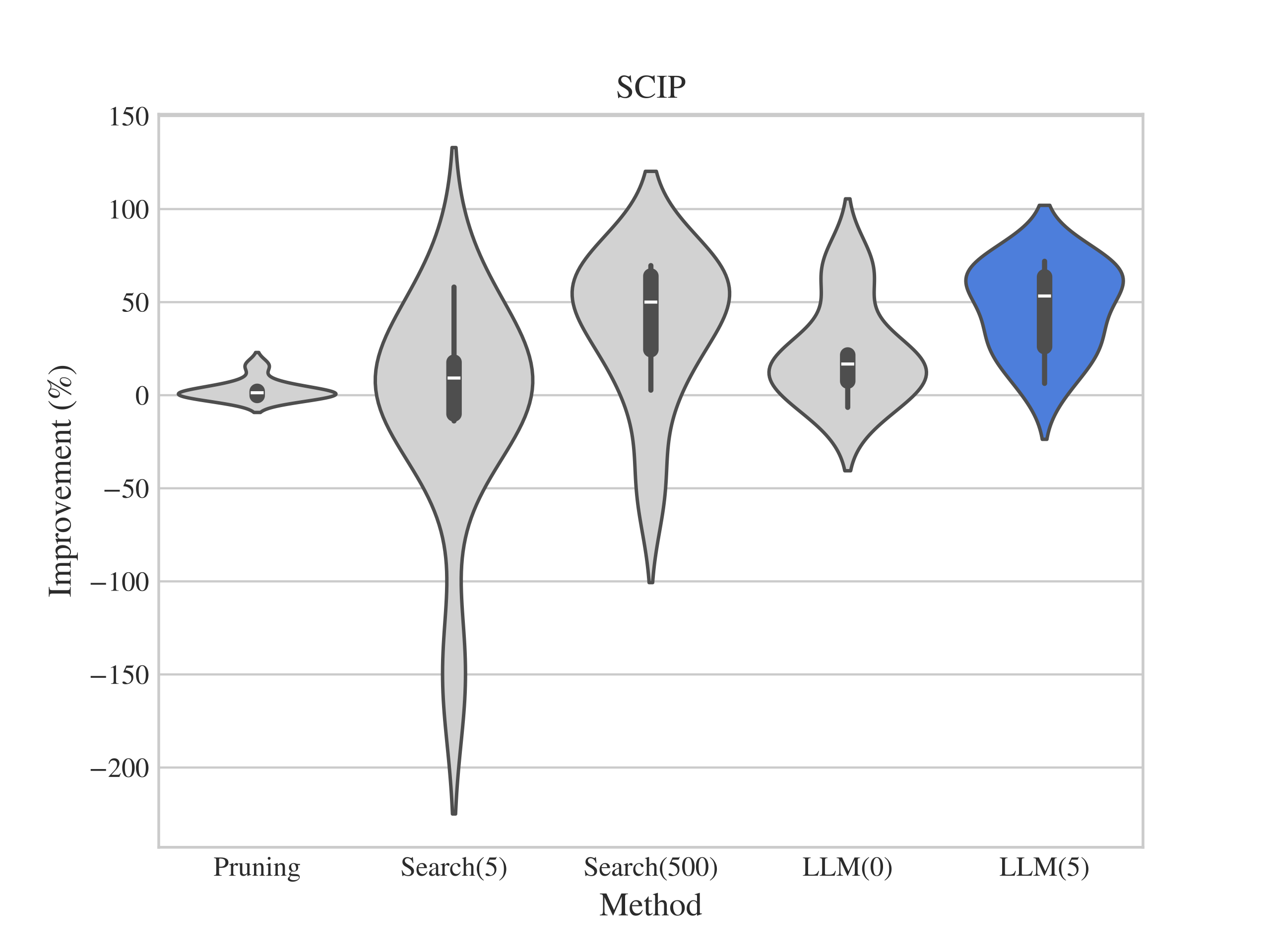
|
Connor Lawless, Yingxi Li, Anders Wikum, Madeleine Udell, Ellen Vitercik Under review at INFORMS Journal on Computing Preliminary version at CPAIOR (2025) Mixed integer linear programming (MILP) solvers ship with a staggering number of parameters that are challenging to select a priori for all but expert optimization users, but can have an outsized impact on the performance of the MILP solver. In this paper, we introduce a new LLM-based framework to configure which cutting plane separators to use for a given MILP problem with little to no training data based on characteristics of the instance, such as a natural language description of the problem and the associated LaTeX formulation. Our LLM-based methodology requires no custom solver interface, can find a high-performing configuration by solving only a small number of MILPs, and can generate the configuration with simple API calls that run in under a second. |
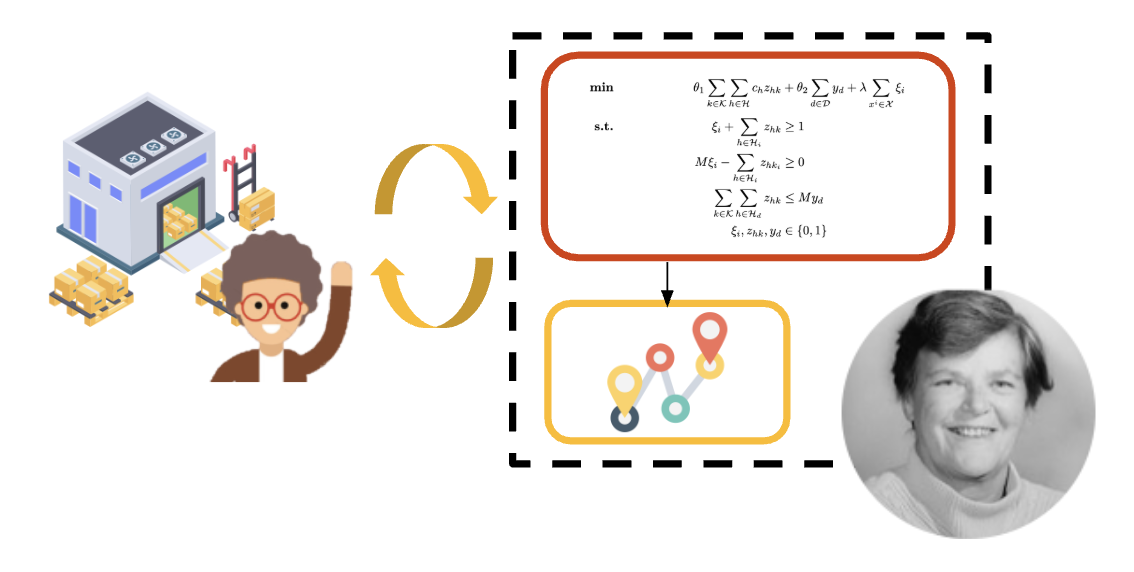
|
Connor Lawless, Jakob Schoeffer, Madeleine Udell Working Paper Optimization powers decisions in fields from healthcare to logistics, but the day-to-day work of building these models has remained largely unexplored. We interviewed 15 practitioners and found that optimization unfolds through a six-stage, highly iterative workflow—from eliciting problems to deploying solutions. Along the way, progress hinges not just on algorithms, but on messy data and continuous dialogue with stakeholders. These insights highlight new opportunities to design tools that make optimization more transparent, collaborative, and human-centered. |
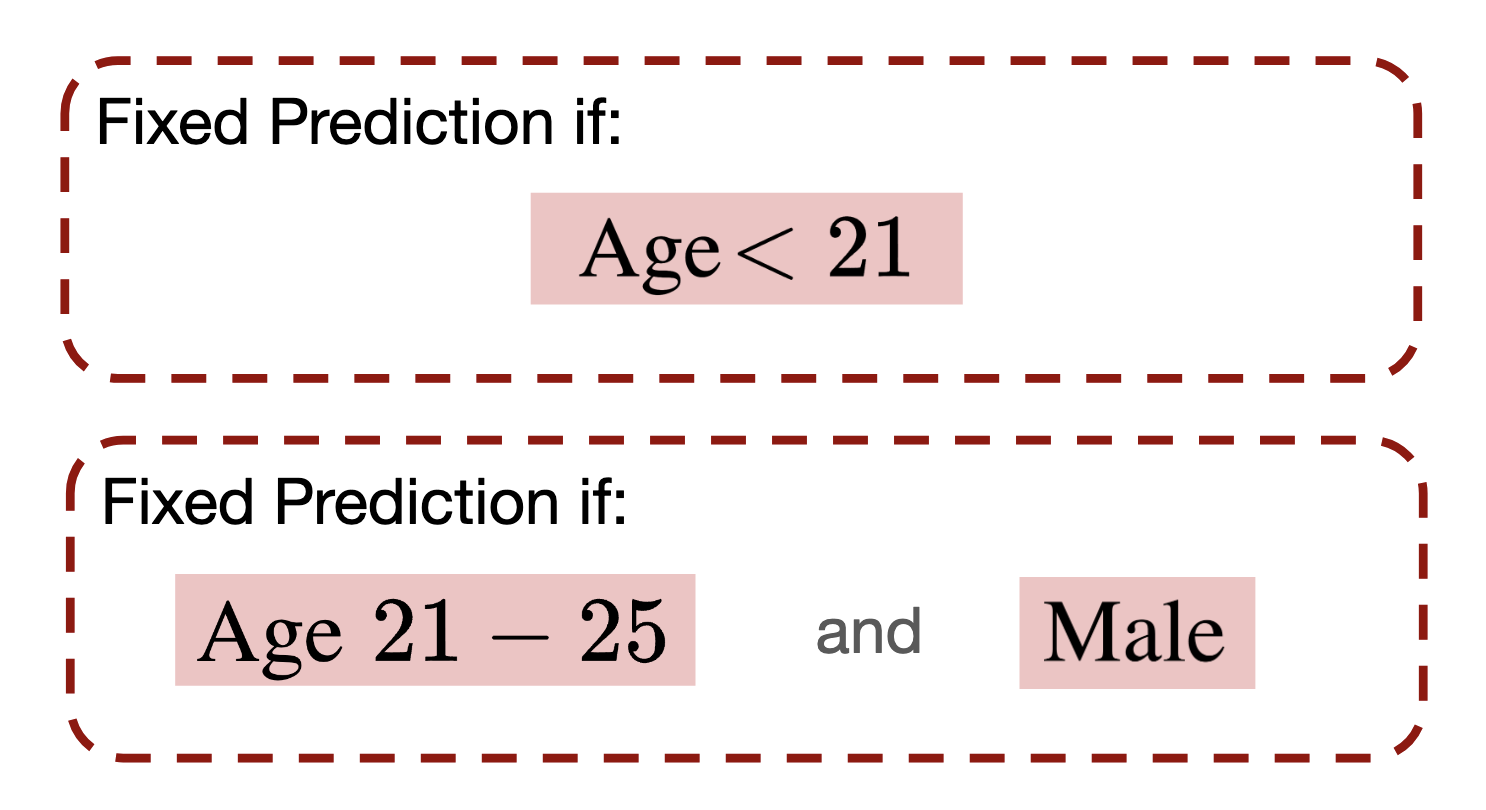
|
Connor Lawless, Lily Weng, Berk Ustun, Madeleine Udell, ICML 2025 Machine learning models are designed to predict outcomes using features about an individual, but fail to take into account how individuals can change them. Consequently, models can assign fixed predictions that deny individuals recourse to change their outcome. This work develops a new paradigm to identify fixed predictions by finding confined regions in which all individuals receive fixed predictions. We introduce the first method, ReVer, for this task, using tools from mixed-integer quadratically constrained programming. Our approach certifies recourse for out-of-sample data, provides interpretable descriptions of confined regions, and runs in seconds on real world datasets. |
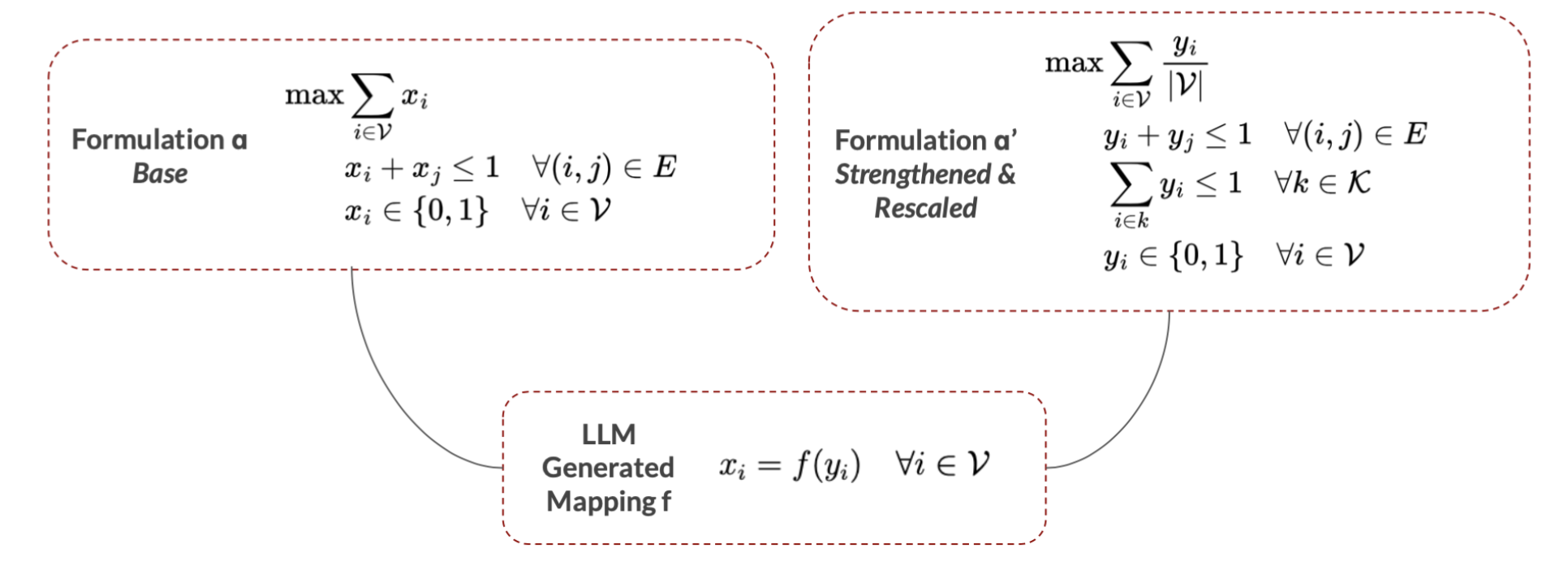
|
Haotian Zhai, Connor Lawless, Ellen Vitercik, Liu Leqi ICML 2025 A flurry of recent work has looked at leveraging large language models (LLMs) to assist in the optimization modeling process, but there aren't any formal ways to check if the generated formulation is even correct! In this work we introduce a new notion of equivalence for optimization model formulations, inspired by Karp Reductions, and test an LLM-based approach for verifying equivalence in practice. |
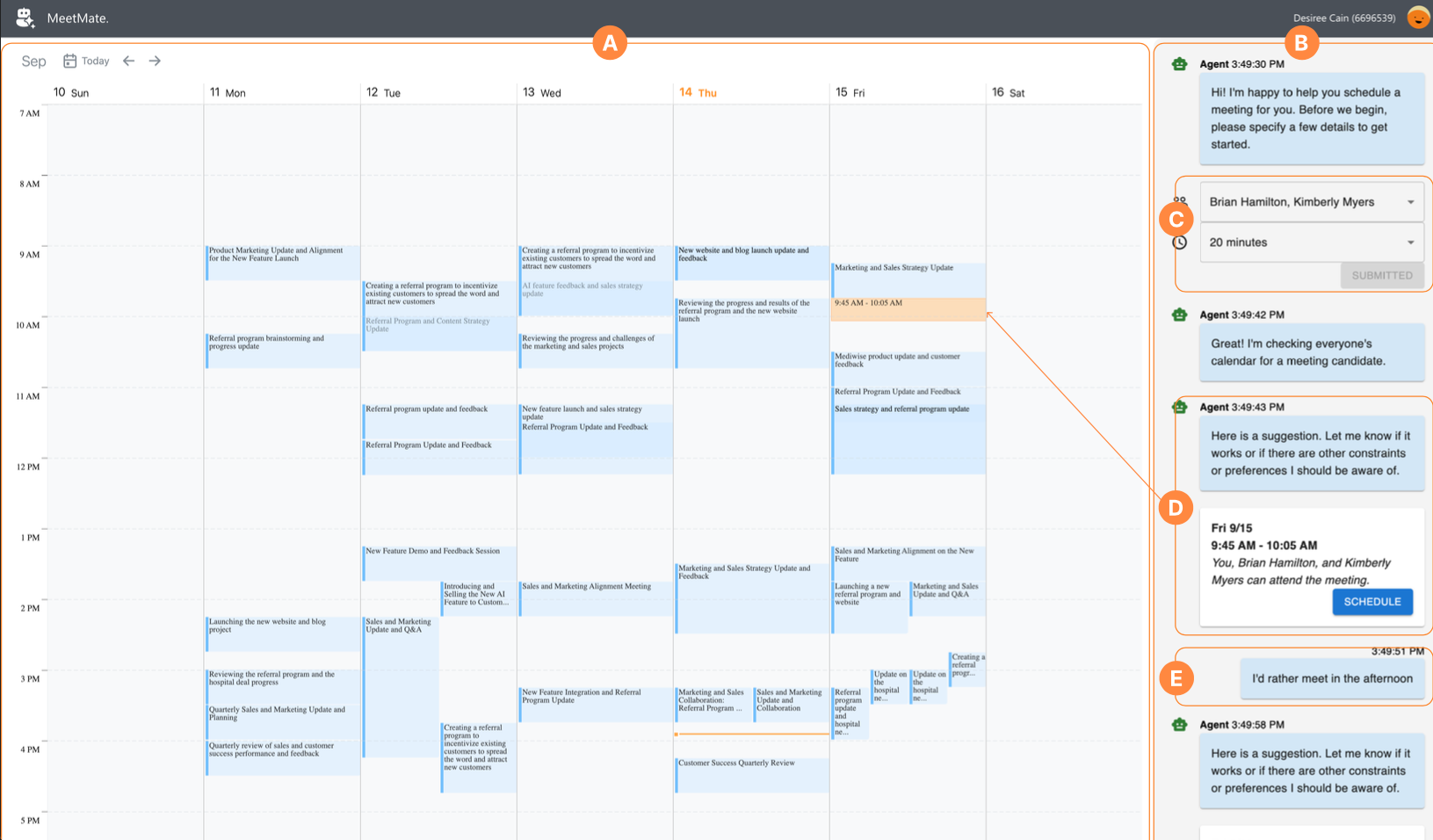
|
Connor Lawless, Jakob Schoeffer, Lindy Le, Kael Rowan, Shilad Sen, Jina Suh, Bahar Sarrafzadeh ACM Transacations on Intelligent and Interactive Systems (ACM TIIS) Mathematical Programming has been a transformative technology for improving decision making in a number of industrial applications but its impact has been largely realized by large institutions that can afford the optimization expertise. We present a novel framework for interactive decision support for non-expert users that leverages large language models (LLM) to translate natural language requests into operations on an underlying constraint programming model. We investigate this framework through the lens of meeting scheduling, and showcase its potential via a user study with a prototype system. |
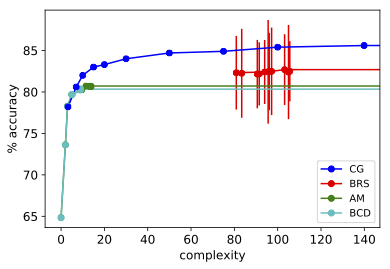
|
Connor Lawless, Sanjeeb Dash, Oktay Gunluk, Dennis Wei Journal of Machine Learning Research This paper considers the learning of Boolean rules in disjunctive normal form (DNF, OR-of-ANDs, equivalent to decision rule sets) as an interpretable model for classification. An integer program is formulated to optimally trade classification accuracy for rule simplicity. We also consider the fairness setting and extend the formulation to include explicit constraints on two different measures of classification parity: equality of opportunity and equalized odds. Check out a short presenation on this paper at the Machine Learning NeEDS Mathematical Optimization Seminar. |

|
Connor Lawless, Oktay Gunluk ICML 2023 We extend the idea of using polyhedra to define clusters to the cluster description setting where cluster assignments are fixed and the goal is to explain them as simply as possible. We model the problem as an exponential-sized IP which we use column generation to solve, and introduce a novel grouping scheme to help our approach tackle large datasets. |
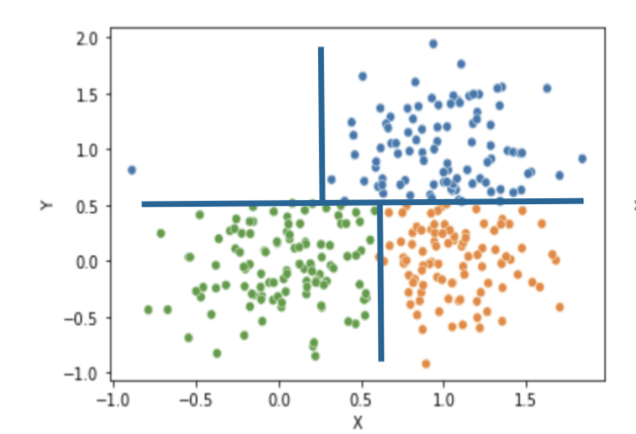
|
Connor Lawless, Jayant Kalagnanam, Lam Nguyen, Dzung T. Phan, Chandra Reddy AAAI 2022 We propose a novel approach for interpretable clustering that both clusters data points and constructs polyhedra around the discovered clusters to explain them. Our framework allows for additional constraints on the polyhedra including ensuring that the hyperplanes constructing the polyhedra are axis-parallel or sparse with integer coefficients. |
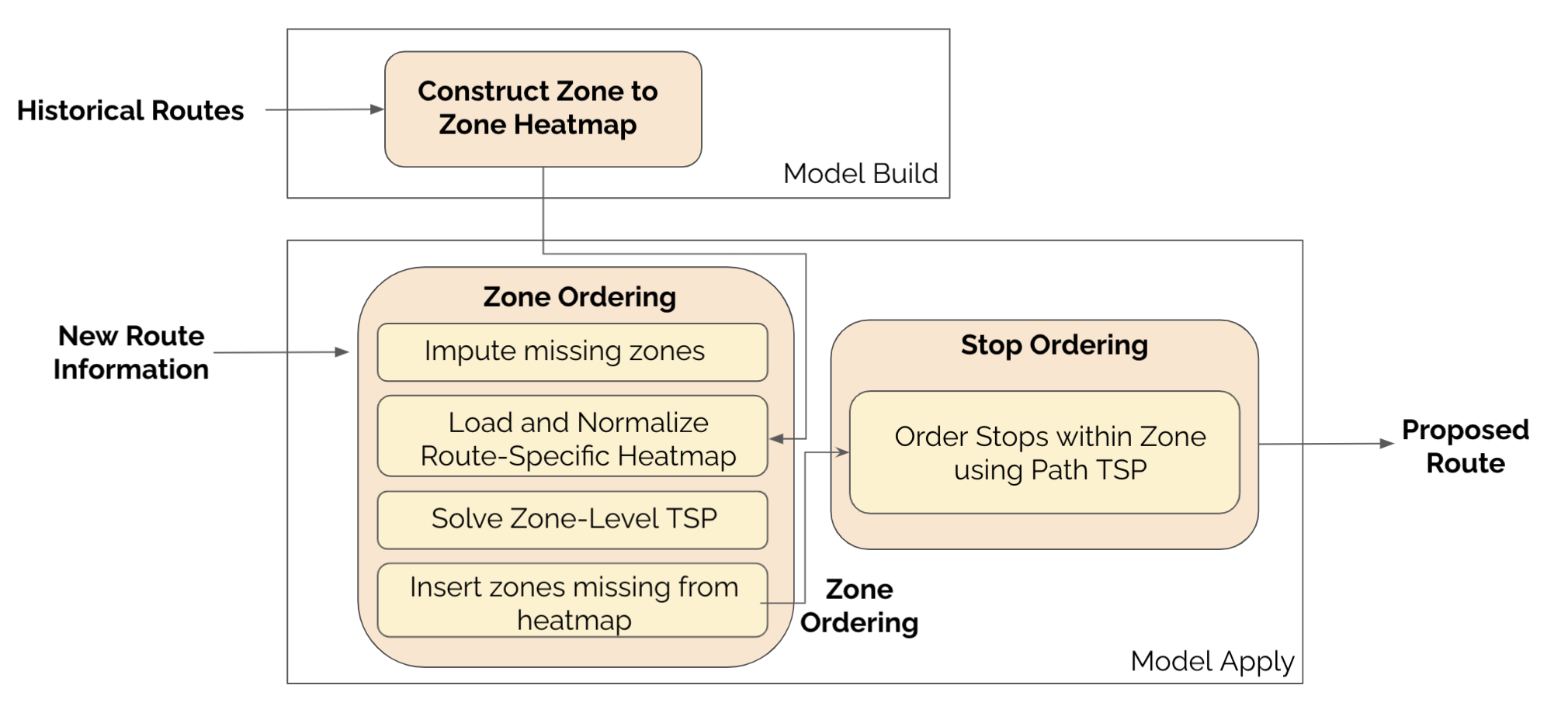
|
Connor Lawless, Sotiris Ntanavaras, Anders Wikum Proceedings of the Amazon-MIT Last Mile Routing Challenge As part of the Amazon-MIT last mile routing challenge we presented a novel hierarchical approach to constructing vehicle routes based on historical driver preferences. |
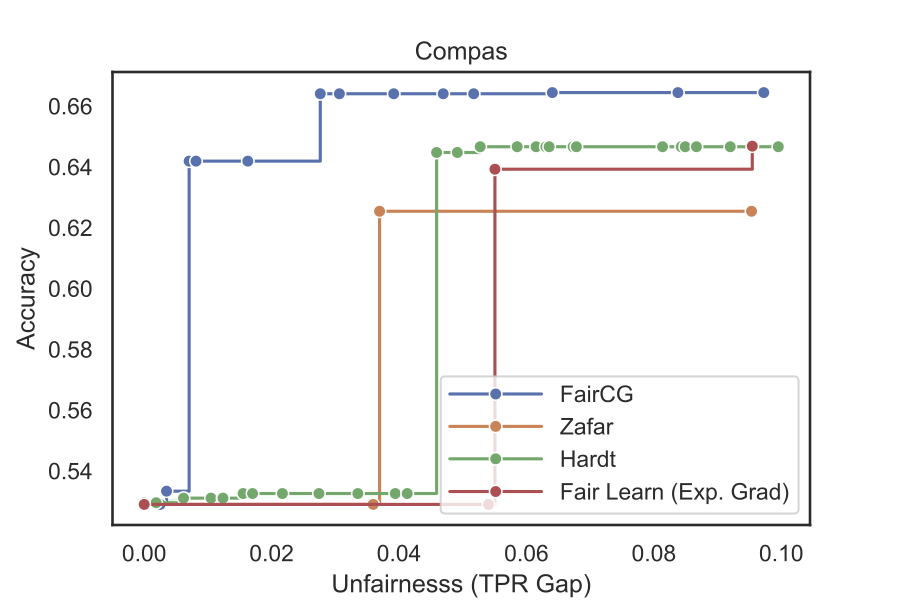
|
Connor Lawless, Oktay Gunluk NeurIPS Workshop on Optimization for Machine Learning 2020 AI for Social Good Workshop, IJCAI 2021 In this work we explore learning boolean rule sets with constraints on group fairness and rule set complexity. Our algorithm FairCG is able to achieve comparable performance to other interpretable models with stronger fairness guarantees. |
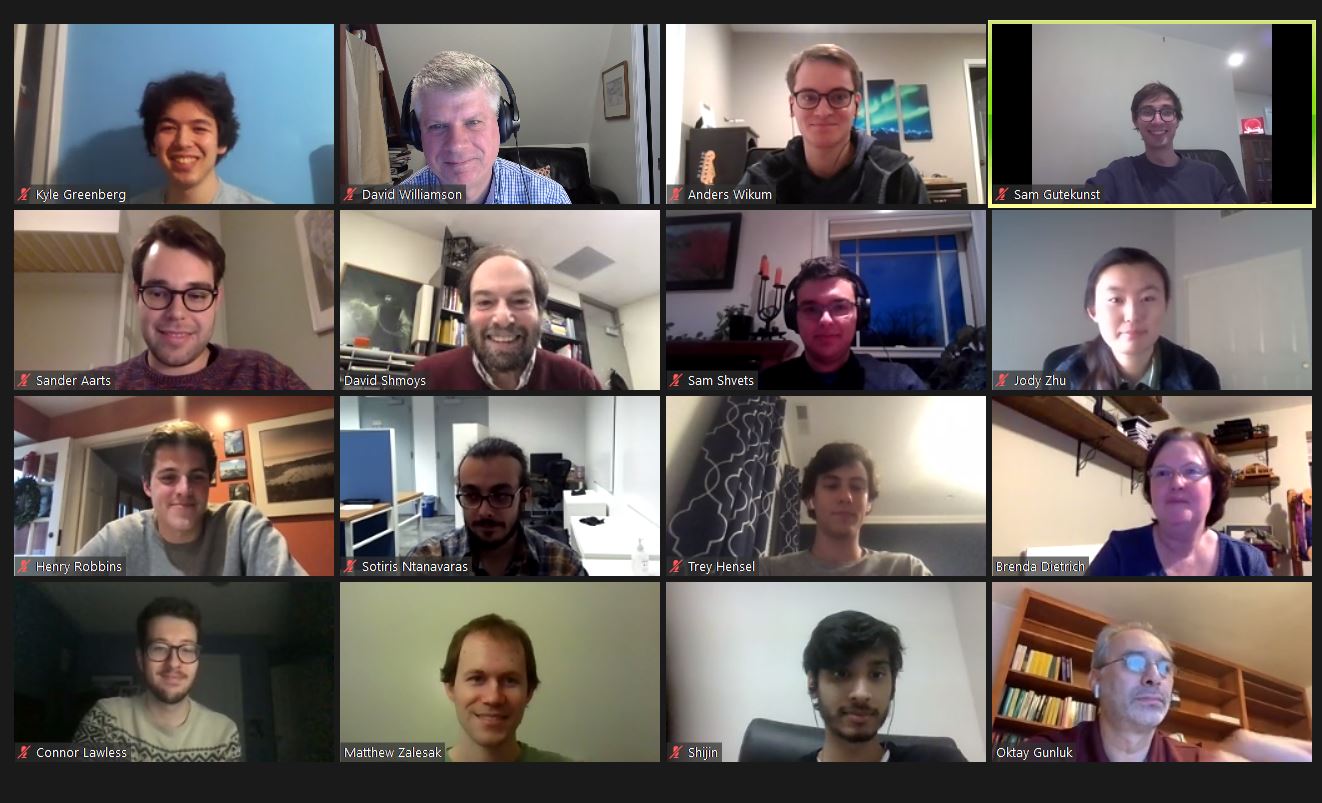
|
Connor Lawless, Oktay Gunluk, David Shmoys, David Williamson, Brenda Dietrich, Anders Wikum, Henry Robbins, Shijin Rajakrishnan, Matthew Zalesak, Varun Suriyanarayana, Sotiris Ntanavaras, Vidhisha Nakhwa, Frank Chi, Brian Liu, Sam Shvets (and many more!) Cornell University As part of Cornell University's re-opening efforts during the COVID-19 pandemic the ORIE department led an effort to re-optmize Cornell's class schedule and room assignments for social distancing and a hybrid education model. I led the implementation of the primary optimization models for both class scheduling and room allocation. |

|
Hasham Burhani, David Shi, Connor Lawless US Patent Application, 2019 Work done while at RBC Capital Markets. This patent outlines our team's approach for building a production grade deep reinforcmenet learning algorithm for trade execution (i.e. buying/selling large quantities of shares with low market impact). Check out our feature on Bloomberg ! |
|
|
 |
AAAI 2026 Leonard Boussioux, Connor Lawless, Ellen Vitercik, Madeleine Udell This tutorial surveys emerging research on LLMs for mathematical optimization, highlighting both practical systems and open research questions. We will provide a comprehensive overview of how LLMs can support each stage of the optimization pipeline, including model formulation, solver configuration, and validation. The tutorial is designed to be accessible to attendees without prior experience in either field, offering both conceptual frameworks and practical insights for this rapidly evolving area of research. |
 |
iXperience Remote, 2020-2022 I've been fortunate enough to spend the last few years teaching undergraduate students across 5 continents the fundamentals of data science in Python. Topics included pandas and numpy, machine learning with scikit-learn, deep learning in keras, and data visualization. As part of the program I also supervised 30+ remote data science projects in industries ranging from fintech to social media marketing. |
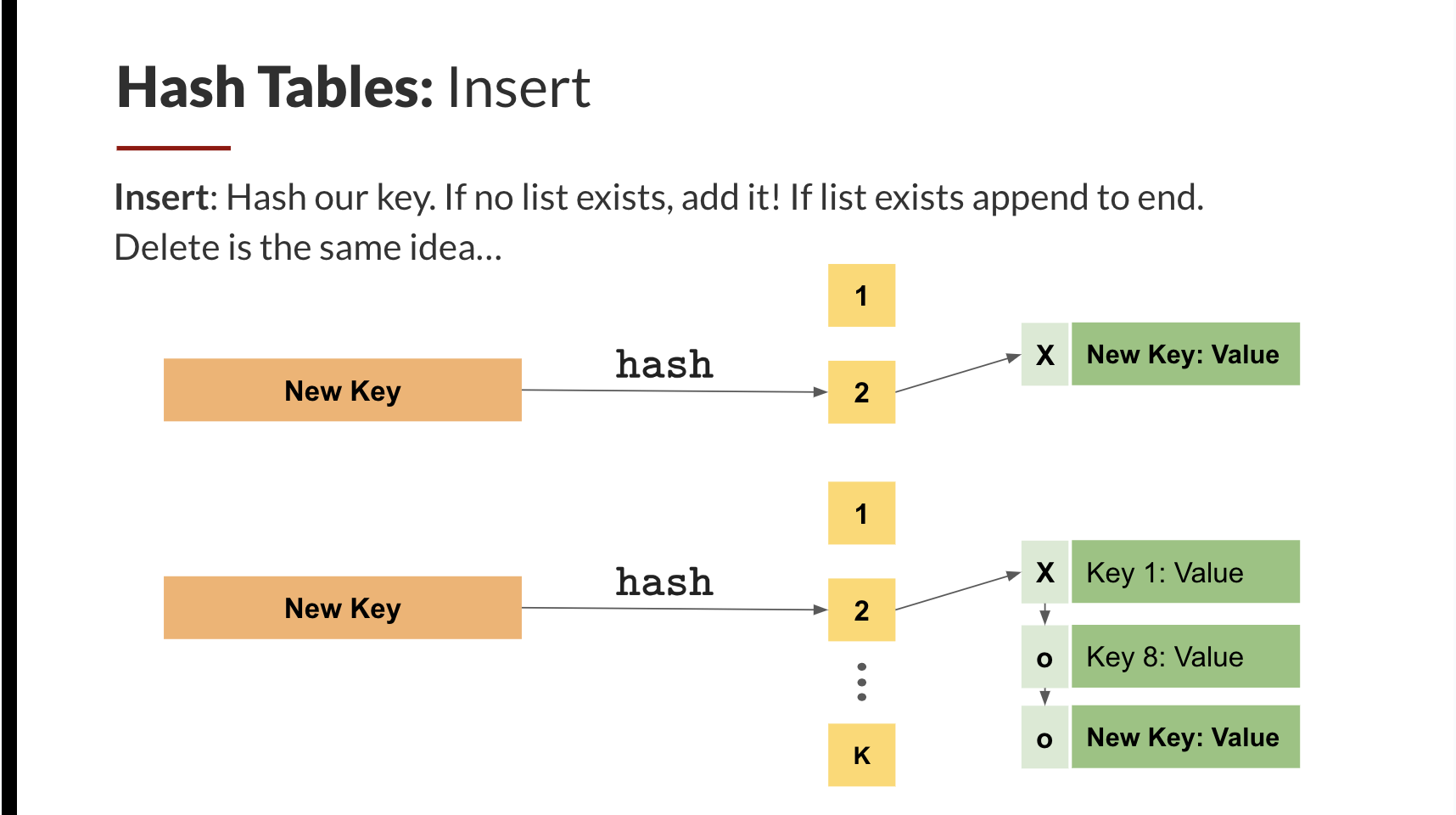 |
Cornell University Ithaca NY, Spring 2023 This course offers a broad overview of computational techniques and mathematical skills useful for data scientists. Topics include: unix shell, regular expressions, version control: (git), data structures and algorithms, working with databases, data analysis using Python and related libraries (Pandas, NumPy/Scipy, scikit-learn), parallel computing (Map-Reduce, Spark, Hadoop), and an overview of standard machine learning and optimization algorithms. |
|
Website template by Jon Barron |